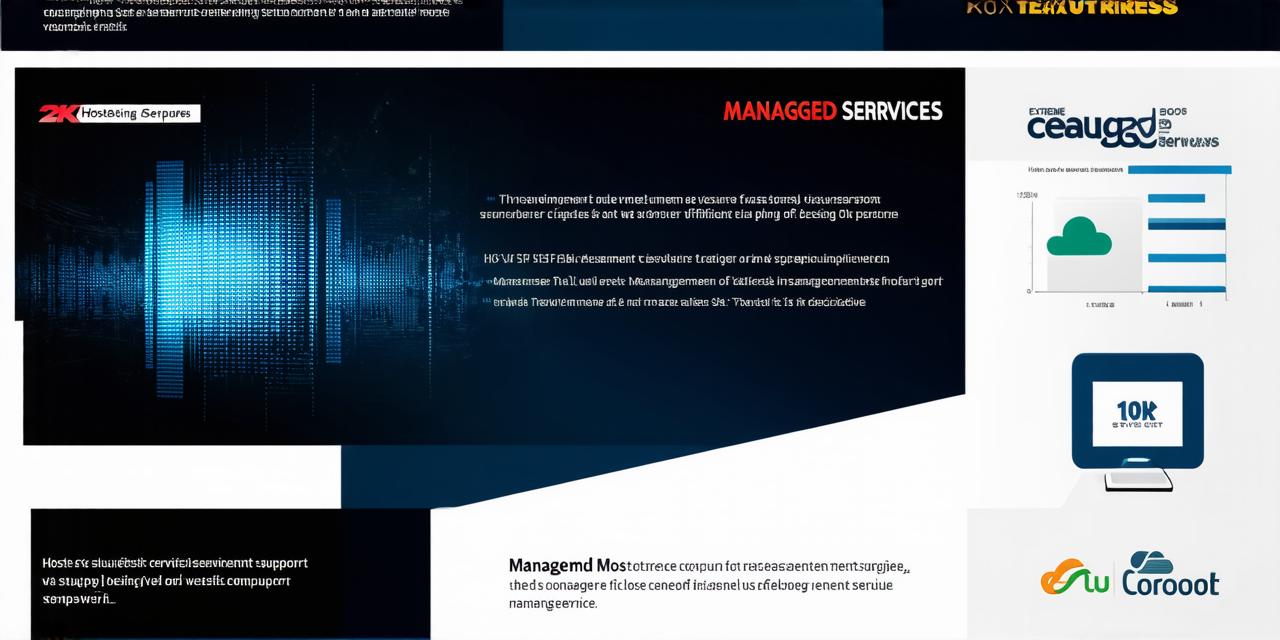Introduction
As a hosting developer, you know how important it is to choose the right hosting service for your website. Whether you’re building a new site or migrating an existing one, the choice between hosting and managed services can be overwhelming. In this comprehensive guide, we’ll explore the key differences between these two types of hosting services and help you make an informed decision about which is best for your needs.
What are Hosting Services?
Hosting services provide the infrastructure that allows your website to be accessible to users on the internet. When you sign up for a hosting service, you’re essentially renting space on a server where your website files and data will be stored. The server is responsible for serving your website to users who request it.
There are several types of hosting services available, including shared hosting, VPS hosting, dedicated hosting, and cloud hosting. Each type offers different levels of resources and support, making them suitable for different types of websites.
What are Managed Services?
Managed services go beyond basic hosting by providing additional features and support to help you maintain your website. These services can include things like automatic backups, security updates, performance optimization, and technical support.
There are several types of managed services available, including fully managed hosting, semi-managed hosting, and self-managed hosting. Each type offers different levels of support and control, making them suitable for different types of websites.
Key Differences Between Hosting and Managed Services
1. Resources and Support
One of the main differences between hosting and managed services is the level of resources and support provided. With basic hosting services, you’re responsible for managing your own server and configuring it to meet your needs. This can be time-consuming and requires technical expertise.
On the other hand, managed services provide additional resources and support to help you manage your website more efficiently. For example, fully managed hosting services may include automatic backups, security updates, performance optimization, and technical support. Semi-managed hosting services may offer some of these features but require more technical expertise on your part.
2. Scalability
Another key difference between hosting and managed services is scalability. With basic hosting services, you’re responsible for scaling your own server to meet the needs of your website. This can be challenging and may require purchasing additional hardware or upgrading your existing server.
Managed services, on the other hand, offer built-in scalability features that allow you to easily increase or decrease the resources allocated to your website as needed. For example, cloud hosting services provide virtually unlimited scalability, allowing you to add or remove resources on demand.
3. Cost
The cost of hosting and managed services can vary depending on the type of service and the level of resources required. With basic hosting services, you’re typically responsible for paying for your own server hardware and software, as well as any additional costs associated with managing the server.
Managed services, on the other hand, are typically more expensive than basic hosting services because they include additional resources and support. However, the total cost of managed services can be lower over time because you won’t need to purchase or maintain your own hardware and software.
4. Maintenance and Support
Finally, the level of maintenance and support provided by hosting and managed services can vary significantly. With basic hosting services, you’re responsible for managing your own server and performing any necessary maintenance tasks. This can be time-consuming and may require technical expertise.
Managed services, on the other hand, provide additional support to help you maintain your website more efficiently. For example, fully managed hosting services may include automatic backups, security updates, performance optimization, and technical support. Semi-managed hosting services may offer some of these features but require more technical expertise on your part.
Case Studies: Real-Life Examples of Hosting and Managed Services in Action
Example 1: Small Business Website
John is a small business owner who wants to create a website for his new business. He has limited technical expertise and doesn’t want to spend a lot of money on hosting or maintenance.
After researching different options, John decides to sign up for a basic shared hosting service. This service provides him with the resources he needs to host his website at an affordable price.



